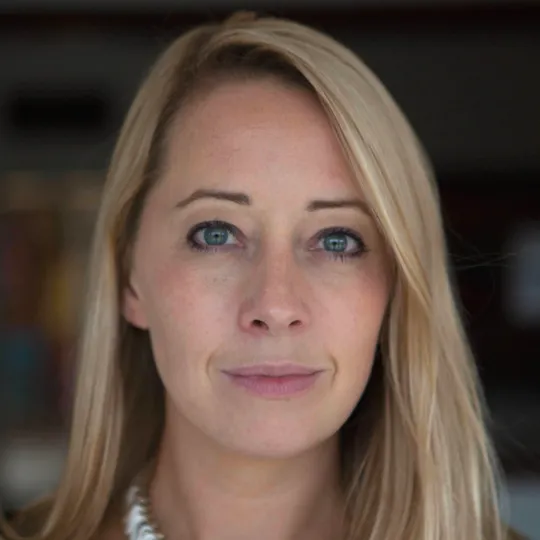
Dr Zoë Norridge
Reader in African and Comparative Literature and Visual Cultures
Contact details
Biography
Zoë Norridge researches contemporary arts and cultural responses to the 1994 genocide against the Tutsi in Rwanda. She is currently completing a monograph, drawing on fifteen years of research, entitled Inside/Out Rwanda: Literature, Photography, Genocide and the Testimony of Place.
Her work often involves collaborating with artists and genocide survivors. In 2024, her long-term collaboration with writer-filmmaker Jo Ingabire Moys resulted in the publication of 100 Days, 100 Stories: Rwandan Voices on the 1994 Genocide Against the Tutsi. In 2020 she co-edited a special issue of Wasafiri with Kenyan writer Billy Kahora on Human Rights Cultures: Rwanda, Kenya, Colombia and Argentina. Both projects gathered together multiple creative perspectives on past political violence with the aim of building cross-cultural connections and nuanced collective memory.
In 2019, her translation of Yolande Mukagasana’s Not My Time to Die (La mort ne veut pas de moi) brought this groundbreaking Rwandan testimony to English audiences for the first time, twenty-two years after it was published in French. The testimony also featured in her first book, Perceiving Pain in African Literature (2012), which considered fiction and life-writing from West Africa, Zimbabwe, Rwanda and Southern Africa.
Over the past ten years, collaborations with photographers have included: convening professional and participatory photography workshops in Kigali, Gisenyi and Musanze (2013, 2015, 2019, 2022); co-curating the exhibition Rwanda in Photographs: Death Then, Life Now with Mark Sealy MBE (2014); and programming events for the first Kigali Photo Fest (2019).
She has a BA and MPhil in Modern Languages (Cambridge), and a PhD in African Literature (SOAS). Before coming to King’s she was the Salvesen Fellow at New College Oxford (English/African Studies), and a Lecturer at York (English). She had a previous career in health promotion working with NGOs in the UK and Papua New Guinea.
Research interests and PhD supervision
- African literature and photography
- Pain, memory, trauma, testimony, empathy
- Cultures of human rights
- Comparative approaches to genocide
- Collaboration, community and love
Dr Norridge welcomes PhD applications related to her research and is particularly interested in creative critical methodologies.
Grants have been fundamental to Norridge’s collaborative work in Rwanda. She was a founding member of Rights for Time, an AHRC GCRF Network Plus examining how temporally complex legacies of conflict can inform humanitarian protection and human rights. She led the network strand on Surfacing Time working with historically marginalised indigenous people alongside the Kigali Center for Photography and AIMPO. Two further AHRC grants funded work on Stories from Rwanda. Alongside publications, they supported co-production of teaching resources, school guidelines, trauma-informed survivor speaker guidelines, policy briefings, cover design mentoring and creative workshops. Other earlier collaborations include the grant Children of Political Violence, which brought together artists from Argentina, Rwanda and Northern Ireland; and Translating Freedom, a grant exploring translation, transitional justice and public culture.
Teaching
Zoë Norridge teaches for both the Department of English and the Department of Languages, Literatures and Cultures.
Her undergraduate courses examine contemporary African love stories (second year), and testimony in the context of the Holocaust and Rwanda (third year). Her MA specialist module is on human rights cultures.
She has a Certificate in Group Facilitation from the Gestalt Centre (2024) and is particularly interested in creating supportive classrooms when teaching emotionally demanding topics.
Expertise and public engagement
Zoë Norridge has experience working with radio and television and is happy to talk to producers and journalists. She is a skilled facilitator, chair and interviewer. Much of her work involves public engagement and she served as Pro-Vice Dean for Impact in Arts & Humanities (2020-21) and Department Impact Lead (2022-present).
She has written and presented two award-winning radio documentaries: Living with Memory in Rwanda (BBC Radio 3, 2014) and Rwanda’s Returnees (BBC Radio 4, 2019). She was one of ten inaugural BBC AHRC New Generation Thinkers in 2011-12.
In 2022 she was longlisted for the Women’s Prize Discoveries Prize for emerging creative writers.
Public roles include:
- Associate Editor at Wasafiri magazine of international contemporary writing (2014-present)
- Member of Holocaust Memorial Day Trust expert advisory group (2017-present)
- Member of AHRC Peer Review College (2016-present)
- Former member of AHRC GCRF Strategic Advisory Group (2016-21)
- Former Chair of the Board of Trustees for the Ishami Foundation (2018-2021)
Zoë Norridge is married to the Jamaican social psychologist Professor Keon West and they have two children. She is dyslexic and loves dance.
Selected publications
- “‘Sweet Like Honey’: Twa Photographers Reframing the Past, Present and Future in a Remote Rwandan Marginalised Community” (Zoë Norridge & Renée Akitelek Mboya, 2024)
- Human Rights Cultures: Rwanda, Kenya, Colombia and Argentina (Billy Kahora & Zoë Norridge (eds), 2020)
- “Photographing Loss: Drawing on Argentine Photography. in Rwanda” (2020)
- Not My Time to Die (Yolande Mukagasana, translated by Zoë Norridge, 2019)
- “‘Papaoutai’? Family memory, parental loss and Rwandan artists today” (2019)
For full details please see her research profile.
Research

Africa Research Group
The Africa Research Group provides a hub for Africa-focused research within the War Studies Department and across the College.

Textual Representation: Poetics/Fiction/Rhetoric
Researchers within the Department of Languages, Literatures, and Culture at King’s College London are dedicated to exploring literary texts in multilingual contexts.
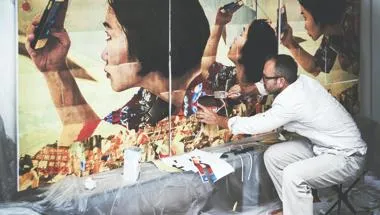
Visual Culture
The Visual Culture research group is a network of scholars within King’s College London working across a diverse historical range of film, art, and performance.
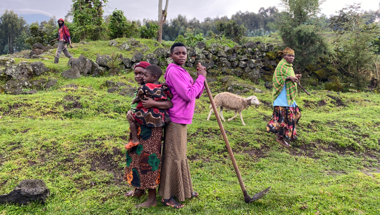
Arts Approaches to Resurgent Conflict in Uncertain Times
How can researchers draw on culturally sensitive arts methodologies to explore civilian responses to living with the threat or reality of resurgent conflict?
Project status: Ongoing
News
King's hosts launch of groundbreaking Rwandan stories
A new collection of Rwandan stories launched at King's on 12 December with editor Jo Ingabire Moys and associate editor Dr Zoe Norridge, Reader in African and...

Arts & Humanities 2023 Institute Fellows announced
The inaugural Institute Fellows have been selected to pursue cross-disciplinary work within the new Digital Futures Institute or Global Cultures Institute.
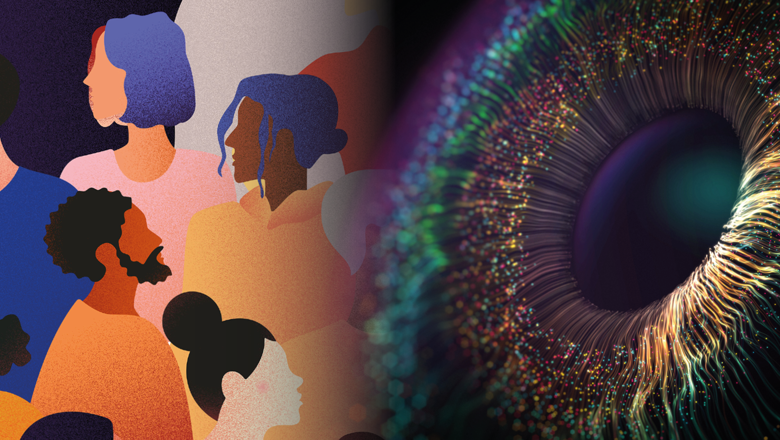
Events
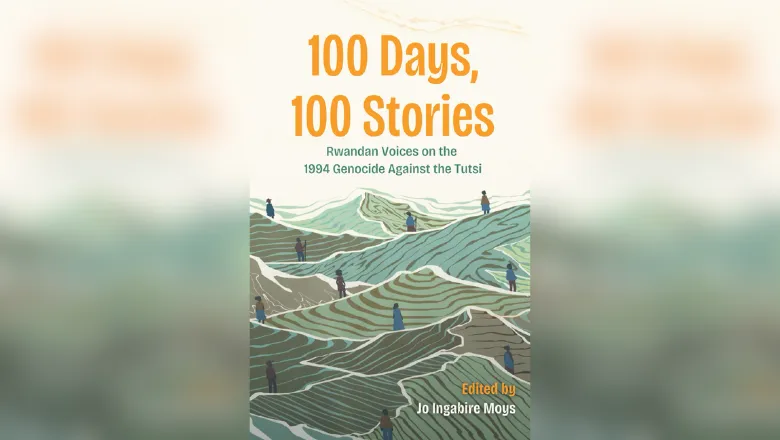
Book launch – 100 Days, 100 Stories: Rwandan Voices on the 1994 Genocide Against the Tutsi
Please join us to celebrate the publication of 100 Days, 100 Stories edited by Jo Ingabire Moys.
Please note: this event has passed.
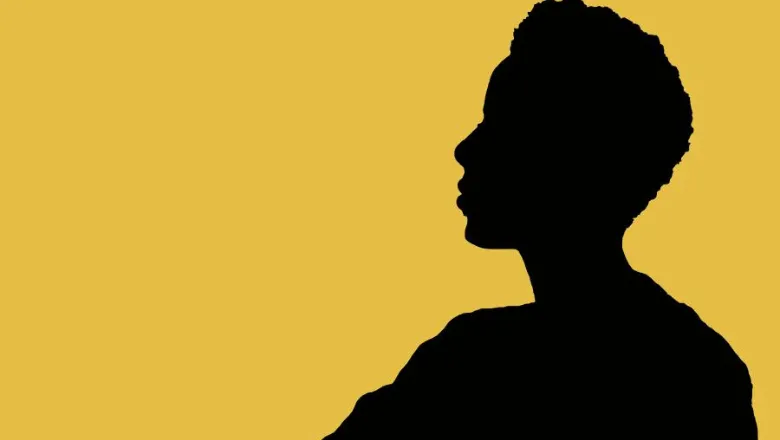
I Am Leah Post-Show Q&A with Jo Ingabire Moys and Zoë Norridge
Zoë Norridge talks to Writer/Director Jo Ingabire Moys about her work with Rwandan testimony.
Please note: this event has passed.
'In the shadow of Biafra' - Film screening and discussion
Louisa Uchum Egbunike and Nathan Richards discuss their film about creative writers’ response to the Nigeria-Biafra war.
Please note: this event has passed.

'That Ugandan flaming homosexual': Film screening and discussion
Uganda’s first openly non-binary photographer and filmmaker talks about their work in the context of Uganda’s Anti-Homosexuality laws.
Please note: this event has passed.

Responding to Crisis through the Arts: Nigeria, Uganda and Rwanda
This panel brings together two prize-winning photographers and the Director of the Hamwe festival in Rwanda to discuss how artists have responded to COVID-19...
Please note: this event has passed.
Features
International Women's Day: Translating the testimony of a Rwandan survivor
This International Women’s Day, King’s academic Dr Zoe Norridge argues that we should pay more attention to Rwandan women’s voices

Research

Africa Research Group
The Africa Research Group provides a hub for Africa-focused research within the War Studies Department and across the College.

Textual Representation: Poetics/Fiction/Rhetoric
Researchers within the Department of Languages, Literatures, and Culture at King’s College London are dedicated to exploring literary texts in multilingual contexts.

Visual Culture
The Visual Culture research group is a network of scholars within King’s College London working across a diverse historical range of film, art, and performance.

Arts Approaches to Resurgent Conflict in Uncertain Times
How can researchers draw on culturally sensitive arts methodologies to explore civilian responses to living with the threat or reality of resurgent conflict?
Project status: Ongoing
News
King's hosts launch of groundbreaking Rwandan stories
A new collection of Rwandan stories launched at King's on 12 December with editor Jo Ingabire Moys and associate editor Dr Zoe Norridge, Reader in African and...

Arts & Humanities 2023 Institute Fellows announced
The inaugural Institute Fellows have been selected to pursue cross-disciplinary work within the new Digital Futures Institute or Global Cultures Institute.

Events

Book launch – 100 Days, 100 Stories: Rwandan Voices on the 1994 Genocide Against the Tutsi
Please join us to celebrate the publication of 100 Days, 100 Stories edited by Jo Ingabire Moys.
Please note: this event has passed.

I Am Leah Post-Show Q&A with Jo Ingabire Moys and Zoë Norridge
Zoë Norridge talks to Writer/Director Jo Ingabire Moys about her work with Rwandan testimony.
Please note: this event has passed.
'In the shadow of Biafra' - Film screening and discussion
Louisa Uchum Egbunike and Nathan Richards discuss their film about creative writers’ response to the Nigeria-Biafra war.
Please note: this event has passed.

'That Ugandan flaming homosexual': Film screening and discussion
Uganda’s first openly non-binary photographer and filmmaker talks about their work in the context of Uganda’s Anti-Homosexuality laws.
Please note: this event has passed.

Responding to Crisis through the Arts: Nigeria, Uganda and Rwanda
This panel brings together two prize-winning photographers and the Director of the Hamwe festival in Rwanda to discuss how artists have responded to COVID-19...
Please note: this event has passed.
Features
International Women's Day: Translating the testimony of a Rwandan survivor
This International Women’s Day, King’s academic Dr Zoe Norridge argues that we should pay more attention to Rwandan women’s voices

